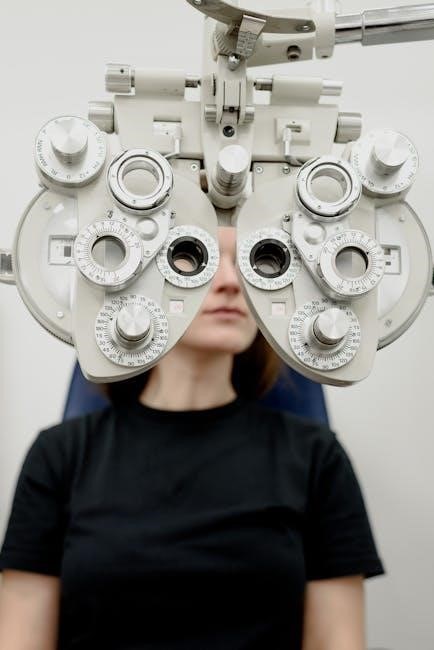Correct, Not Politically Correct PDF: Understanding the Debate
Correct, Not Politically Correct is a thought-provoking book authored by Frank Turek, an award-winning writer known for his evidence-based arguments. The book delves into controversial topics such as same-sex marriage and transgenderism, challenging societal norms and political correctness. Turek argues that these issues have far-reaching implications for individuals, families, and society as a whole, even for those within the LGBTQ+ community. He emphasizes the importance of truth and logic over emotional appeals, providing a respectful yet firm critique of modern cultural shifts. The book is designed to provoke critical thinking and encourage open dialogue, urging readers to consider the long-term consequences of redefining marriage and gender. Available in PDF format, Correct, Not Politically Correct has sparked significant debate, making it a relevant and timely resource for understanding these complex social issues.
Author Frank Turek and His Arguments
Frank Turek, an award-winning author and Christian apologist, presents a compelling case in his book Correct, Not Politically Correct. Turek argues against same-sex marriage and transgenderism, not from a religious perspective, but through evidence-based reasoning. He believes that redefining marriage and gender will have detrimental consequences for society, including children, families, and even those within the LGBTQ+ community. Turek addresses common objections, such as claims of discrimination and equal rights, by emphasizing the importance of biological and societal norms. His arguments are rooted in logic and empirical evidence, aiming to spark a respectful yet truth-oriented dialogue. Turek’s approach is direct and unapologetic, challenging readers to reconsider politically correct narratives and focus on the broader societal implications of these issues. His work has garnered both praise and criticism, making him a prominent voice in contemporary cultural debates.
The Main Thesis: Same-Sex Marriage and Its Implications
The central argument of Frank Turek’s book is that legalizing same-sex marriage harms everyone, including children, society, and even homosexuals themselves. Turek contends that redefining marriage undermines its traditional purpose as a union between a man and a woman, leading to a breakdown in family structures and societal cohesion. He argues that children raised in same-sex households are deprived of either a biological father or mother, which he believes is essential for their emotional and psychological development. Turek also asserts that normalizing same-sex marriage erodes the distinction between male and female roles, further destabilizing societal norms. Using evidence rather than religious doctrine, he challenges the notion that same-sex marriage is a neutral or benign change, instead highlighting its far-reaching consequences. Turek’s thesis is controversial but thought-provoking, urging readers to consider the long-term impact of redefining marriage on future generations and the fabric of society.
Transgenderism and Its Impact on Society
Turek critiques the growing acceptance of transgenderism, arguing that it perpetuates a false narrative about gender and identity. He asserts that biological sex cannot be changed, and societal efforts to blur the lines between male and female lead to confusion and harm, particularly for children. Turek highlights the irreversible consequences of transitioning, such as physical and emotional damage, and questions the ethicality of promoting gender transitions as a solution to identity struggles. He also examines how transgenderism challenges traditional norms and societal structures, leading to a broader cultural shift away from biological reality. Turek’s analysis is direct and provocative, urging a reevaluation of the movement’s implications for individuals and society. His arguments are supported by evidence and a call for a compassionate yet truthful approach to addressing gender dysphoria.

The Role of Political Correctness in Modern Discourse
Frank Turek examines how political correctness stifles open dialogue and manipulates public opinion. He argues that PC culture prioritizes avoiding offense over seeking truth, silencing dissenting voices and fostering a climate of fear. Turek contends that this phenomenon is not about inclusivity but about controlling narratives and imposing ideological conformity. He criticizes the suppression of debates on issues like same-sex marriage and transgenderism, where dissenters are labeled as hateful or bigoted. Turek emphasizes that political correctness undermines free speech and critical thinking, creating a society where people self-censor to avoid societal backlash. He calls for a return to honest, respectful discourse, where ideas are evaluated based on their merits rather than their alignment with prevailing political ideologies. Turek’s critique aligns with broader concerns about the erosion of intellectual freedom in an increasingly PC-driven world.
Key Themes and Arguments Presented in the Book
Frank Turek’s book, Correct, Not Politically Correct, delves into several key themes, primarily focusing on the societal implications of redefining marriage and gender. Turek argues that same-sex marriage and transgenderism are not merely personal issues but have far-reaching consequences for individuals, families, and society as a whole. He emphasizes the importance of biological and traditional understandings of marriage, asserting that they are essential for the well-being of children and the stability of culture. Turek also critiques the idea of political correctness, arguing that it suppresses honest dialogue and forces individuals to conform to ideologies that contradict evidence and reason. He addresses objections about equal rights and discrimination, contending that his arguments are not rooted in hatred but in a desire to protect societal norms that benefit everyone. By combining logical reasoning with empirical evidence, Turek challenges readers to reconsider their views on these deeply divisive topics.

Critique of Same-Sex Marriage and Its Consequences
Frank Turek’s critique of same-sex marriage in Correct, Not Politically Correct centers on its societal and cultural ramifications. He argues that redefining marriage beyond its traditional understanding undermines the institution’s foundational purpose of uniting a man and a woman for the sake of children. Turek contends that same-sex marriage leads to a disconnection between marriage and procreation, which he believes is detrimental to the family structure and societal stability. He also highlights the potential legal and cultural consequences, such as increased discrimination against those who hold traditional views, and challenges the notion that same-sex marriage is a neutral or harmless change. Turek’s arguments emphasize the importance of preserving traditional marriage to protect the rights and well-being of children, asserting that they are best served by having both a mother and a father. His critique is framed as a call to rethink the implications of societal changes on future generations.
The Impact on Children and Future Generations
Correct, Not Politically Correct, raises significant concerns about the impact of same-sex marriage and transgenderism on children and future generations. He argues that the redefinition of marriage and gender roles may lead to a loss of clarity regarding biological and societal norms, potentially confusing children about their identity and roles in society. Turek emphasizes that children thrive best in stable, two-parent households with both male and female role models, asserting that same-sex marriage could disrupt this balance. He also warns about the potential long-term effects of normalizing transgenderism among children, citing the irreversible consequences of medical interventions and the psychological challenges that may arise. Turek’s central argument is that societal changes, though intended to promote equality, may inadvertently harm the most vulnerable members of society—children—by undermining the family structures essential for their development and well-being. His analysis calls for a careful reconsideration of these issues to ensure the best outcomes for future generations.
Addressing Objections: Equal Rights and Discrimination
Correct, Not Politically Correct, Frank Turek addresses objections regarding equal rights and discrimination, arguing that the push for same-sex marriage and transgenderism often overlooks broader societal implications. While critics claim that opposing these movements is discriminatory, Turek counters that the issue is not about denying rights but about upholding biological and societal truths. He asserts that redefining marriage and gender roles could lead to unintended consequences, such as religious discrimination and the erosion of freedoms. Turek also challenges the notion that individuals are “born that way,” emphasizing that scientific evidence does not fully support this claim. He argues that policies based on gender identity rather than biological sex could harm women’s rights and create legal conflicts. By focusing on the societal impact, Turek aims to foster a balanced discussion that considers both individual rights and the common good. His approach seeks to address objections with evidence and logic, encouraging readers to think critically about these contentious issues.
The Role of Government in Social Issues

Opposing Viewpoints and Counterarguments

Frank Turek addresses opposing viewpoints in his book, acknowledging the arguments for same-sex marriage and transgender rights. He engages with counterarguments about equality and discrimination, offering evidence-based responses. Turek counters claims that same-sex marriage is a matter of equal rights by emphasizing the societal consequences of redefining marriage. He also challenges the idea that gender is fluid, citing biological and psychological evidence. While respecting individual freedoms, Turek argues that societal norms should not be dictated by political correctness but grounded in objective truths. His approach encourages dialogue, urging readers to evaluate both sides of the debate. By addressing these counterarguments, Turek aims to provide a balanced yet persuasive perspective on the issues. His arguments are presented respectfully, fostering understanding and critical thinking among readers. The book serves as a platform for open discussion, inviting readers to explore the complexities of these contentious topics.
The PDF Format and Its Availability for Download
The book Correct, Not Politically Correct by Frank Turek is widely available in PDF format, making it accessible for readers to download and read on various devices. The PDF version ensures that the content is easily shareable and readable on platforms like computers, tablets, and smartphones. Many online platforms offer the PDF for download, including Z-Library and other digital bookstores. Readers can also access the book in EPUB and Kindle formats, providing flexibility based on their preferences. The PDF format is particularly popular due to its compatibility and convenience. Additionally, the book has been updated and expanded in later editions, such as the 2017 version, which includes new insights and responses to evolving societal debates. Interested readers can download the PDF directly from trusted sources, ensuring they access the most recent and accurate version of Turek’s arguments. The availability of the book in digital formats underscores its relevance in contemporary discussions about same-sex marriage and transgenderism.
Cultural Relevance and the Importance of the Discussion
Frank Turek’s Correct, Not Politically Correct addresses issues of significant cultural relevance, particularly in today’s polarized society. The discussion surrounding same-sex marriage and transgenderism is not only timely but also essential for understanding the broader implications on cultural norms and values. Turek’s arguments, grounded in evidence and logic rather than religion, provide a unique perspective that encourages readers to engage critically with these topics. The book’s focus on the potential consequences of redefining marriage and gender roles resonates deeply in ongoing societal debates. By challenging politically correct narratives, Turek aims to foster a more open and honest dialogue about the impact of these changes on individuals and society as a whole. The cultural relevance of this discussion is further emphasized by its ability to provoke thought and encourage readers to question their assumptions about equality, identity, and the role of government in shaping social policies.
